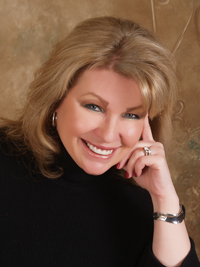
A colleague in the industry tells a story of a job interview that may demonstrate something we’d rather not know about PR and ethics.
He was interviewing a candidate for an account executive position, and one of the final questions—a standard one he asked all candidates—was, “What would you do if a client wanted you to lie for him?”
Most often, he said, candidates would display some sense of being troubled by the scenario, and explain that their integrity was too high a price to pay for any client. Not this candidate. She folded her hands, looked him in the eye and said, “Ethics. I see.”
She then proceeded to quote the PRSA code of ethics. She quoted it to a T. And he says it was the worst interview answer anyone ever gave him.
The problem with her answer was not that it was wrong. A wrong answer can be corrected. This answer was cold, unfeeling and showed an entire disinterest in the real meaning of the question.
“I didn’t want to hear that she had memorized some guideline,” he remembers. “Anyone can memorize something. I wanted a sincere expression of this really mattering to her, and that her honesty wasn’t for sale. She could have looked me in the eye and said, ‘And if you ever try to get me to lie, I’m out of here!’ And I would have loved it. But instead, she quoted the rule book. What a dud.”
SPOUTING OFF
I don’t enjoy saying this, but I often think these days that our entire industry has become a little too much like that dud of a job applicant. We can recite the commonly accepted ethical principles, often with great reverence, but when it comes to applying these principles in the day-to-day running of our businesses, we always seem to find a reason they don’t apply to us.
We all remember Hill & Knowlton getting busted for helping to engineer false testimony before Congress during its representation of the so-called “Citizens for a Free Kuwait.” As part of the propaganda war during the run-up to the first Gulf War, it was an example of ethical shamelessness that reportedly prompted an H&K exec to admonish his employees, “We’d represent Satan if he paid.”
Perhaps this is inevitable in an industry where, according to the International Association of Business Communicators, there is little or no ethics training.
Of course, a fundamentally honest person may not need ethical training. But what message does it send when employees are given no specific instruction to ensure that they understand the lines their employers will not cross?
“The agency needs clients and billings,” thinks the employee. “Am I expected to do anything to keep the money flowing? No matter what? Because no one’s really made it clear how far is too far.”
In that way, the lack of ethical training essentially becomes the opposite of ethical training. If I haven’t drawn a line for you, there is no line.
Of course, there are very big, high-profile agencies who will blather on in public about the importance of ethics. Maybe that sends a message to their employees, you think? Well, maybe, but their employees know what they actually do, not just what they say. Which factor do you think has more influence on their employees? Exactly.
HEADS IN THE SAND
The problem becomes all the more serious in an age when there are so many new ways to skirt ethical standards. Who is going to know if you write phony online product reviews? Who can tell the difference if you buy followers on Twitter?
We may be in the perception business, but since when does that give us license to let the perception of authenticity substitute for the real thing? Maybe we got that idea from the technology that now makes such ethical lapses so easy to perpetrate. But maybe we decided to go ahead and do it because we’re part of an industry that too often mouths the words about ethics, but doesn’t really feel it in the pit of its gut.
BE LIKE DUCKY
The estimable Dr. Donald “Ducky” Mallard of the CBS show NCIS was asked by his assistant to answer a question about ethics. He gave a great answer: “The ethical man knows he’s not supposed to cheat on his wife. The moral man actually wouldn’t.”
Unless we live them, ethics are nothing more than set of rules, a code, something anyone can memorize and rattle off on cue. They allow our industry to talk a good game about good business practices, but require little else of us. That makes us little more than the spin doctors our worst critics say we are.
And I know we can do better than that. PRN
CONTACT:
Ann Subervi is chair of PRSA’s Counselors Academy special interest section and CEO of Utopia Communications, a PR agency headquartered in NJ. For more on ethics in the PR industry, visit her blog at www.ethicaloptimist.com.
